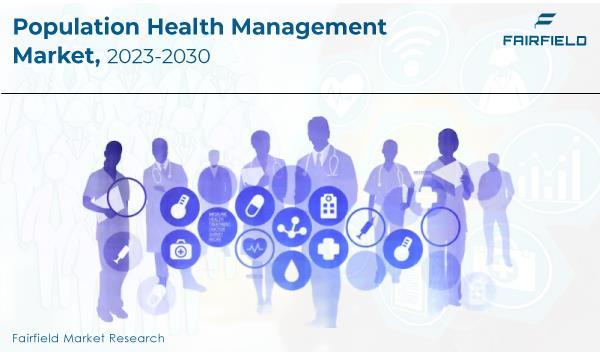The Role of Genomics and Precision Medicine in Future Population Health Management
The global population health management market is set to experience significant growth in the coming years, fueled by various factors such as increasing government mandates and support for healthcare IT solutions, the growing utilization of big data analytics, and the imperative need to contain rising healthcare costs. With a strong focus on optimizing health outcomes for defined population segments, population health management programs aim to bridge the gap between technology and clinical practice, resulting in improved patient satisfaction and reduced medical expenses.
For More Industry Insight Read : https://www.fairfieldmarketresearch.com/report/populationhealth-management-market
Chronic diseases have become a major concern, driving the adoption of population health management solutions. These long-term illnesses, prevalent worldwide, necessitate efficient treatment and ongoing monitoring of patient records. Non-communicable diseases alone account for a staggering 71% of global fatalities, with chronic diseases causing 41 million deaths annually. The alarming increase in chronic disease prevalence underscores the critical role of population health management in accurately managing patient data, thereby propelling market growth. The elderly population, particularly those predisposed to obesity and diabetes, faces a greater burden of chronic illnesses. According to the United Nations Database on World Population Ageing 2020, the number of older people worldwide is projected to reach 1.5 billion by 2050, further driving the demand for effective population health management solutions.

The growing adoption of cloud-based solutions is also contributing to the expansion of the population health management market. The cloud segment is expected to witness substantial growth during the forecast period, offering benefits such as enhanced data management, reduced data loss risks, and simplified regulatory compliance. Organizations are increasingly embracing cloud deployment strategies to meet client demands and achieve business objectives. Cloud-based solutions provide scalability, 24/7 support, improved IT security, and streamlined access and administration of vast volumes of data, fostering market growth.
North America currently dominates the population health management industry, driven by escalating healthcare expenditures and a heightened focus on public health. The United States is projected to spend around 20% of its GDP, reaching approximately $4.8 trillion on healthcare by 2021. Consequently, there is an increasing demand for efficient population health management solutions to address the concerning rise in healthcare costs. Government initiatives, such as the Affordable Care Act (ACA), encourage the adoption of IT in healthcare, thereby creating opportunities for service providers to efficiently collect and retain patient data. In the Asia Pacific region, the population health management market is poised for rapid growth, propelled by expanding healthcare infrastructure, increased healthcare spending, and the rise of medical tourism.
Several key players are actively participating in the global population health management market. These include Cerner Corporation, Epic Systems Corporation, Koninklijke Philips, i2i Population Health, Health Catalyst, Optum, eClinicalWorks, Enli Health Intelligence, Allscripts Healthcare Solutions, Orion Health, HealthEC LLC, Medecision, IBM Corporation, athenahealth, Arcadia, Conifer Health Solutions, Cotiviti, NextGen Healthcare, Inc., Lightbeam Health Solutions, SPH Analytics, Citra Health Solutions, Innovaccer, Lumeris, Evolent Health, Inc., and Forward Health Group.
As the demand for population health management solutions continues to surge, market players are focusing on innovation, strategic partnerships, and expanding their product portfolios to cater to the evolving healthcare landscape. The global population health management market is anticipated to witness robust growth, driven by the urgent need to enhance health outcomes, reduce medical costs, and enable coordinated care across diverse stakeholders.
Web : https://www.fairfieldmarketresearch.com/
